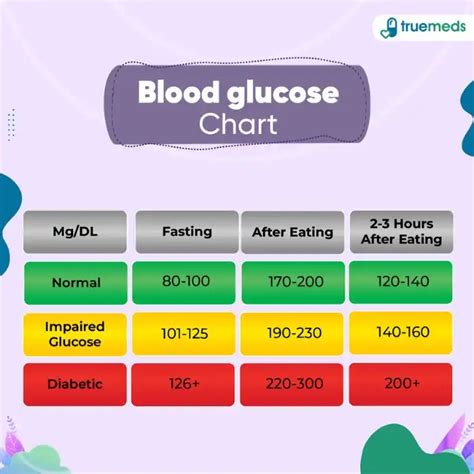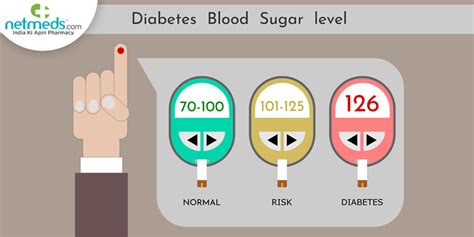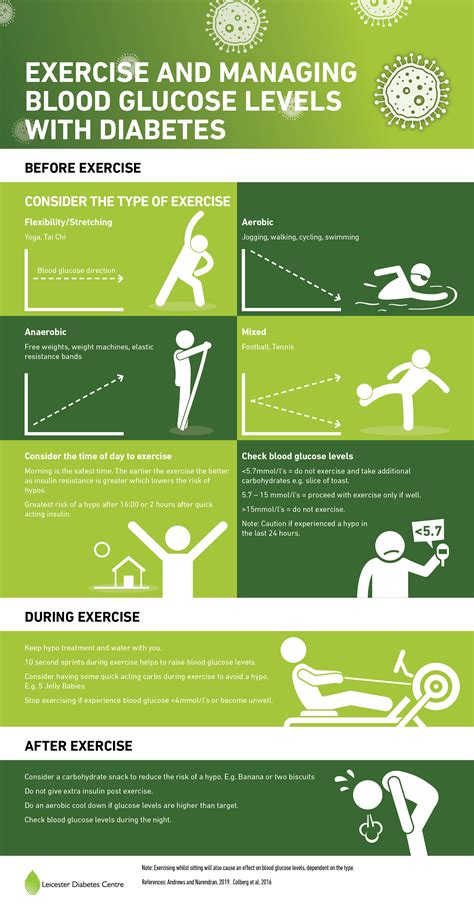Intro
The importance of maintaining appropriate sugar levels in the body cannot be overstated. Sugar, or glucose, is the primary source of energy for the body's cells, and it plays a crucial role in various bodily functions. However, excessive sugar consumption can lead to a range of health problems, including diabetes, obesity, and heart disease. On the other hand, low sugar levels can cause fatigue, dizziness, and even fainting. Therefore, it is essential to maintain a balance and ensure that sugar levels remain within a healthy range.
The human body has a complex system for regulating sugar levels, involving the pancreas, liver, and other organs. The pancreas produces insulin, a hormone that helps to regulate blood sugar levels by facilitating the uptake of glucose by cells. The liver, on the other hand, stores glycogen, a complex carbohydrate that can be broken down into glucose when needed. When sugar levels drop, the liver releases glucose into the bloodstream, and when sugar levels rise, the pancreas releases insulin to help cells absorb the excess glucose. This delicate balance is crucial for maintaining energy levels, supporting growth and development, and preventing chronic diseases.
Maintaining appropriate sugar levels is not just important for overall health, but it is also crucial for preventing and managing various diseases. For example, individuals with diabetes need to carefully monitor their sugar levels to prevent complications such as nerve damage, kidney disease, and blindness. Similarly, individuals with hypoglycemia (low blood sugar) need to be aware of the signs and symptoms of low sugar levels, such as shakiness, sweating, and confusion, and take steps to prevent them. By understanding how to maintain healthy sugar levels, individuals can take control of their health and reduce their risk of developing chronic diseases.
Maintaining Healthy Sugar Levels

Maintaining healthy sugar levels involves a combination of dietary changes, lifestyle modifications, and medical interventions. One of the most effective ways to maintain healthy sugar levels is to follow a balanced diet that is rich in whole foods, such as fruits, vegetables, whole grains, and lean proteins. These foods are naturally low in added sugars and rich in fiber, vitamins, and minerals that help to regulate blood sugar levels. Individuals should also limit their intake of sugary drinks, refined carbohydrates, and processed snacks, which can cause a rapid spike in blood sugar levels.
In addition to dietary changes, regular physical activity is also essential for maintaining healthy sugar levels. Exercise helps to improve insulin sensitivity, which allows cells to absorb glucose more efficiently, and it also helps to reduce stress and anxiety, which can contribute to high blood sugar levels. Individuals should aim to engage in at least 150 minutes of moderate-intensity aerobic exercise, or 75 minutes of vigorous-intensity aerobic exercise, or a combination of both, per week. They should also incorporate strength-training exercises, high-intensity interval training, and other forms of physical activity to improve overall health and well-being.
Understanding Blood Sugar Levels

Understanding blood sugar levels is crucial for maintaining healthy sugar levels. Blood sugar levels are measured in milligrams per deciliter (mg/dL), and they can be affected by a range of factors, including diet, physical activity, stress, and certain medications. Normal blood sugar levels typically range from 70 to 140 mg/dL, although this can vary depending on the individual and the time of day. Individuals with diabetes or prediabetes may need to monitor their blood sugar levels more closely, using a glucose meter or continuous glucose monitor, to ensure that their levels remain within a healthy range.
Individuals can also use the glycemic index (GI) to understand how different foods affect their blood sugar levels. The GI is a measure of how quickly a food raises blood sugar levels, with higher GI foods causing a more rapid increase in blood sugar. Foods with a high GI, such as white bread, sugary snacks, and sweetened beverages, should be limited or avoided, while foods with a low GI, such as whole grains, fruits, and vegetables, should be encouraged.
The Importance of Monitoring Sugar Levels

Monitoring sugar levels is essential for individuals with diabetes or prediabetes, as well as those who are at risk of developing these conditions. Regular monitoring can help individuals to identify patterns and trends in their blood sugar levels, make informed decisions about their diet and lifestyle, and adjust their treatment plan as needed. There are several ways to monitor sugar levels, including:
- Fasting blood sugar tests: These tests measure blood sugar levels after an overnight fast and can help to diagnose diabetes or prediabetes.
- Postprandial blood sugar tests: These tests measure blood sugar levels after eating and can help to assess how well the body is regulating blood sugar levels.
- Continuous glucose monitoring: This involves wearing a small device that tracks blood sugar levels throughout the day and can provide detailed information about blood sugar patterns and trends.
- Urine tests: These tests can help to detect ketones, which are produced when the body breaks down fat for energy instead of glucose.
Managing Sugar Levels through Diet

Diet plays a crucial role in managing sugar levels, and individuals can take several steps to ensure that their diet is supporting healthy blood sugar levels. Some tips for managing sugar levels through diet include:
- Eating regular meals: Skipping meals can cause blood sugar levels to drop, while eating regular meals can help to maintain stable blood sugar levels.
- Choosing complex carbohydrates: Complex carbohydrates, such as whole grains, fruits, and vegetables, are rich in fiber and can help to slow the absorption of glucose into the bloodstream.
- Incorporating protein and healthy fats: Protein and healthy fats, such as avocado, nuts, and seeds, can help to slow the absorption of glucose and provide a feeling of fullness and satisfaction.
- Limiting sugary drinks: Sugary drinks, such as soda and sports drinks, can cause a rapid spike in blood sugar levels and should be limited or avoided.
- Drinking plenty of water: Staying hydrated can help to regulate blood sugar levels and support overall health and well-being.
The Role of Physical Activity in Managing Sugar Levels

Physical activity plays a critical role in managing sugar levels, and individuals can engage in a range of activities to support healthy blood sugar levels. Some of the benefits of physical activity for managing sugar levels include:
- Improved insulin sensitivity: Regular physical activity can help to improve insulin sensitivity, which allows cells to absorb glucose more efficiently.
- Increased glucose uptake: Physical activity can help to increase glucose uptake in the muscles, which can help to lower blood sugar levels.
- Enhanced cardiovascular health: Regular physical activity can help to improve cardiovascular health, which can reduce the risk of heart disease and other complications associated with diabetes.
- Weight management: Physical activity can help with weight management, which is essential for maintaining healthy blood sugar levels.
Some examples of physical activities that can help to manage sugar levels include:
- Brisk walking: Brisk walking is a low-impact activity that can help to improve insulin sensitivity and increase glucose uptake.
- Swimming: Swimming is a low-impact activity that can help to improve cardiovascular health and reduce stress.
- Cycling: Cycling is a low-impact activity that can help to improve insulin sensitivity and increase glucose uptake.
- High-intensity interval training: High-intensity interval training involves short bursts of intense activity followed by periods of rest, and can help to improve insulin sensitivity and increase glucose uptake.
Stress Management and Sugar Levels

Stress can have a significant impact on sugar levels, and individuals can take several steps to manage stress and support healthy blood sugar levels. Some tips for managing stress and sugar levels include:
- Practicing relaxation techniques: Relaxation techniques, such as deep breathing, meditation, and yoga, can help to reduce stress and anxiety.
- Getting enough sleep: Getting enough sleep is essential for managing stress and supporting healthy blood sugar levels.
- Engaging in physical activity: Regular physical activity can help to reduce stress and anxiety, and support healthy blood sugar levels.
- Seeking social support: Seeking social support from friends, family, or a therapist can help to reduce stress and anxiety, and support healthy blood sugar levels.
Conclusion and Next Steps

In conclusion, maintaining healthy sugar levels is crucial for overall health and well-being. Individuals can take several steps to support healthy blood sugar levels, including following a balanced diet, engaging in regular physical activity, managing stress, and monitoring blood sugar levels. By taking these steps, individuals can reduce their risk of developing chronic diseases, such as diabetes and heart disease, and maintain optimal health and well-being.
We invite you to share your thoughts and experiences on maintaining healthy sugar levels in the comments below. How do you manage your sugar levels, and what tips do you have for others? Share this article with your friends and family to help them understand the importance of maintaining healthy sugar levels. Together, we can work towards creating a healthier and more informed community.
What are the symptoms of high blood sugar levels?
+The symptoms of high blood sugar levels can include increased thirst and urination, blurred vision, fatigue, and slow healing of cuts and wounds.
How can I lower my blood sugar levels naturally?
+You can lower your blood sugar levels naturally by following a balanced diet, engaging in regular physical activity, managing stress, and getting enough sleep.
What are the risks of uncontrolled blood sugar levels?
+The risks of uncontrolled blood sugar levels can include nerve damage, kidney disease, blindness, and increased risk of heart disease and stroke.
How often should I monitor my blood sugar levels?
+The frequency of monitoring your blood sugar levels will depend on your individual needs and health status, but most people with diabetes need to monitor their levels at least once a day.
What are the benefits of maintaining healthy blood sugar levels?
+The benefits of maintaining healthy blood sugar levels can include reduced risk of chronic diseases, improved energy and mental clarity, and enhanced overall health and well-being.
